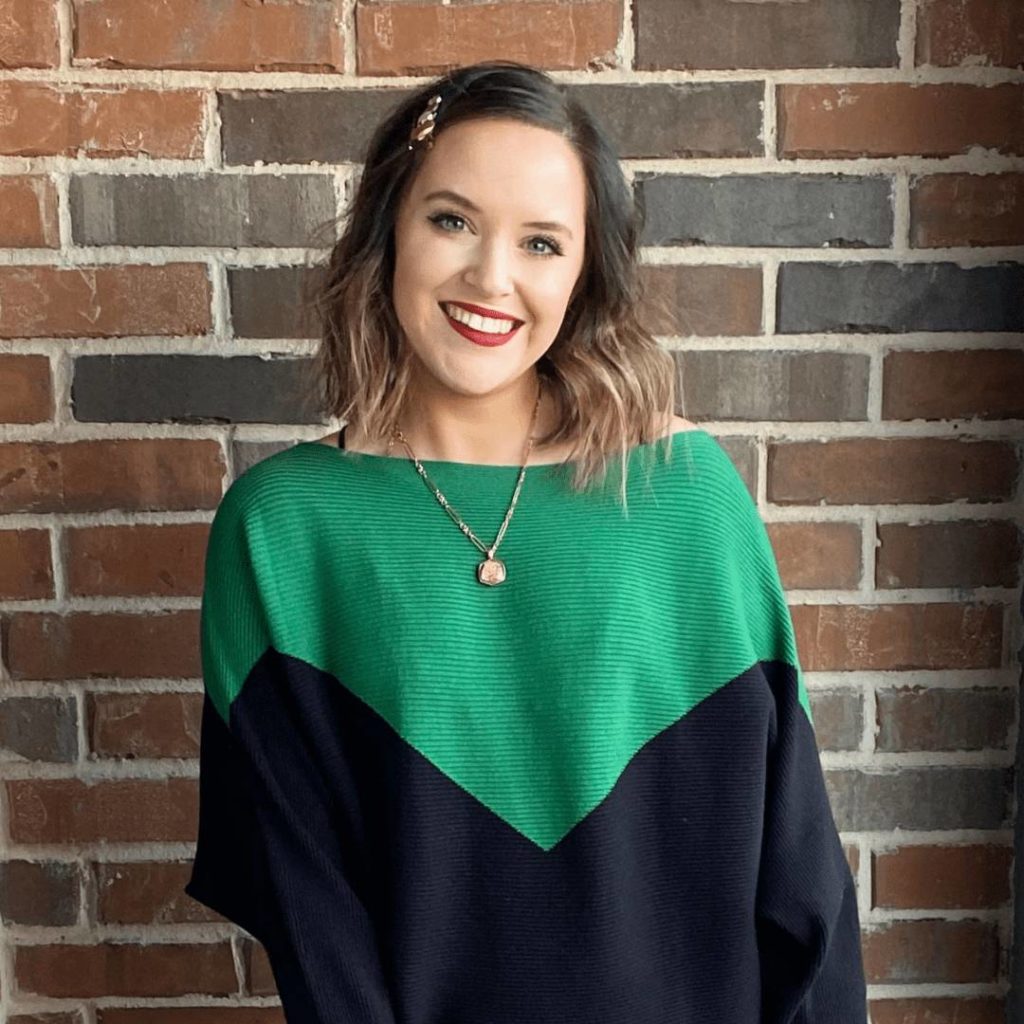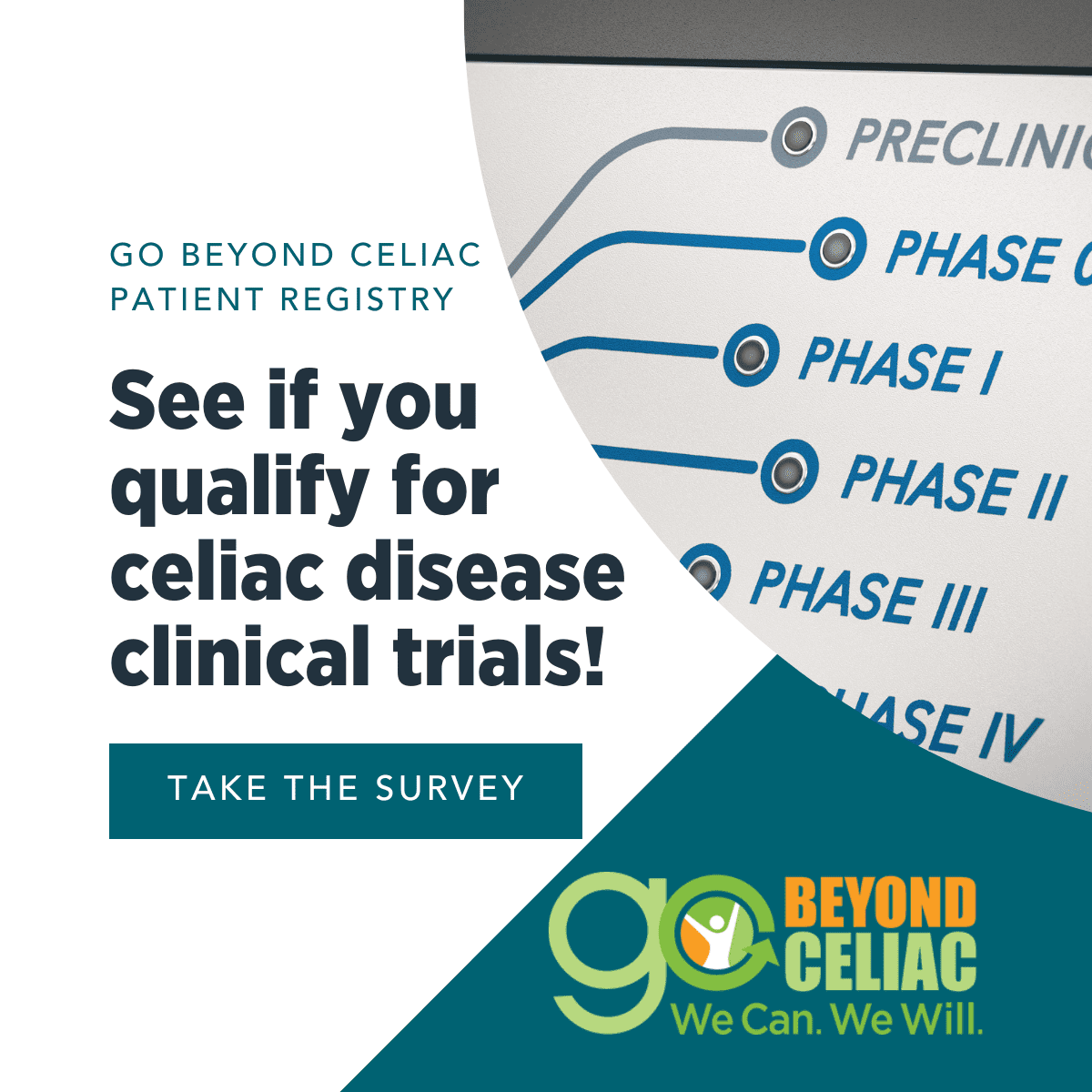Describe your life prior to diagnosis:
I never had the typical stomach problems that are associated with celiac disease. I was an all-star cheerleader and from the outside I seemed the definition of health.
How long did it take for you to get diagnosed since your first symptoms and what (if any) challenges did you face along the way?
“She has to be exaggerating.”
“She isn’t actually sick.”
“She must be dramatic.”
All things that flash through my brain as I get rushed into the emergency room. Reassuring the doctors that no, I’m not an addict. I’m not an alcoholic. This was a common conversation I had to have. Constantly begging to be taken seriously by doctors who wrote me off is one of the things that haunt me to this day.
I was 17 when I had my first pancreatitis attack. After spending a week in the hospital, I was discharged and told this was a fluke, and as a precaution I should go on a low-fat diet for a few months to give my pancreas a rest. I was never tested for celiac disease and it was never considered that something could be wrong. I tried to go back to normal life while maintaining a low-fat diet but I just couldn’t seem to be myself again. I was experiencing stomach pains, my hair was falling out, I was covered in bruises, barely 90 pounds and miserable. I had eight sinus infections in a row and sports injuries that couldn’t heal.
Less than 5 months after my first attack of pancreatitis, it happened again. The pain is unlike anything I’ve ever experienced. One minute I was okay, the next I was blacked out on the floor and being assessed by the paramedics. After a couple days in the hospital, a pediatric gastroenterologist came to see me. He took one look at me and said, “Sweetheart you don’t look so good. We need to figure this out.”
How did you come to know that you have celiac disease?
After spending 10 minutes with me and asking questions my pediatric gastroenterologist said he thought I had celiac disease. I remember a flood of panic ran over me because I had no clue what that was. Celiac disease was not talked about often, yet. We did an endoscopy to confirm and boy did it confirm! The inside of a healthy small intestine is lined with villi that are a light pink color, but my villi were gone and my insides were nothing but dark purple. There was so much damage that it looked completely burned. My blood work was atrocious too. My body was literally attacking itself and I wasn’t absorbing nutrients.
Describe your experience with living with celiac disease:
With a diagnosis, the doctor assured us that I would have a new life, a healthier one. I just wasn’t prepared for what I was about to discover about celiac disease. Gluten comes in so many forms. It’s in everything! Deodorant, hairspray, toothpaste, makeup, even GLUE! It also has many different names. Most times you won’t see “gluten” listed in the ingredients. It could say barley, rye, oats, wheat protein, malt, and so many other words. Thank goodness for Google but it took a long time to not be completely discouraged by having to look up every product or food I came in contact with. Eating out was like a Russian roulette game. Restaurants not taking me seriously almost put me back in the hospital so many times. Cross-contact is the ultimate enemy. One crumb of gluten and you’re down for the count. 11 years ago it was not as easy to find gluten-free items as it is today. You can go into any grocery store now and find food that actually tastes good! For that, I am thankful!
A couple years later into my journey back to health I started having stomach problems again. I was strictly gluten-free and my doctor said I should have been okay again. What no one anticipated was all the inflammation my body had endured pre-diagnosis. It caused cholecystitis, an inflammation of the gallbladder. It was bad enough that my gallbladder had to come out. I told myself that it was a mild setback—I would be healthy after this!
Unfortunately, that wasn’t the case either. I was still experiencing stomach pain. After several ER visits and tests it was determined that all the inflammation pre-diagnosis had caused damage to my pancreas. Scar tissue had developed and clogged my pancreas ducts, and I needed a procedure. The procedure was successful, but getting so close to the pancreas brought on full-blown pancreatitis attack. I remember laying in the hospital bed after 12 days wondering if this is what my life would always be like. Would I always have problems? Was being healthy just too far out of reach? This point in my celiac disease journey was about four years ago. After that, life started to turn around for me.
Over the course of the next seven years I adapted to what I thought healthy was. I was still navigating what it meant to have celiac disease: reading labels, finding recipes, learning about cross-contact. Dating was awkward. Trying to explain why I couldn’t eat places or why I couldn’t be kissed after a meal because of cross-contact was always embarrassing. I eventually gave up trying to get people to understand me and this disease. It just seemed like everywhere I went I was being judged and assumptions were being made. This wasn’t a fad diet and there were no cheat days. I wouldn’t have just a small stomach ache if I ate gluten—I would spend weeks recovering, potentially in the hospital. I still experienced unknown stomach pains and nausea. ER visits were still a frequent thing. I’ve been told I have chronic pancreatitis, ulcers and gastritis. All of these resulted from my delayed diagnosis of celiac disease.
11 years after diagnosis and I have stopped eating out to eliminate cross-contact. I cut out as many processed foods as I can. Clean eating isn’t as boring as some may think. I’ve had fun finding new recipes to try, but to be honest the best part is, after over a decade, I’m finally experiencing what health is. It took so long to reverse the damage celiac disease had caused, but overall I am now a healthy, well-adjusted adult who’s far too obsessed with her dog.
Is there anything else you want to add about your experience with celiac disease?
Self-care is a crucial part of managing this disease. It takes a physical and emotional toll on your body. It’s okay to need rest. It’s okay to feel sad or angry. Learning to accept this disease and its challenges has not been an easy task. I realized I don’t have to make people understand me or this disease.
So many people are diagnosed with celiac disease every day. Each person’s journey is different from the next. My journey has not been easy but I’m so blessed to be able to share my story and help others going through this too. I now use social media to spread awareness for celiac disease, and I like showing people they can actually eat yummy meals!



